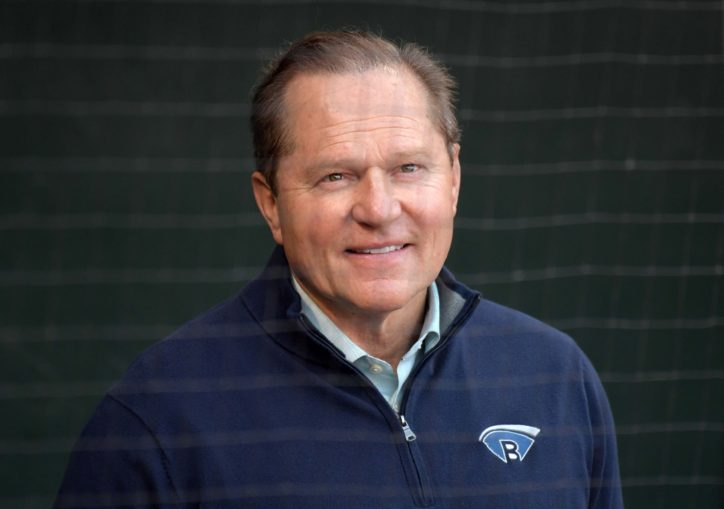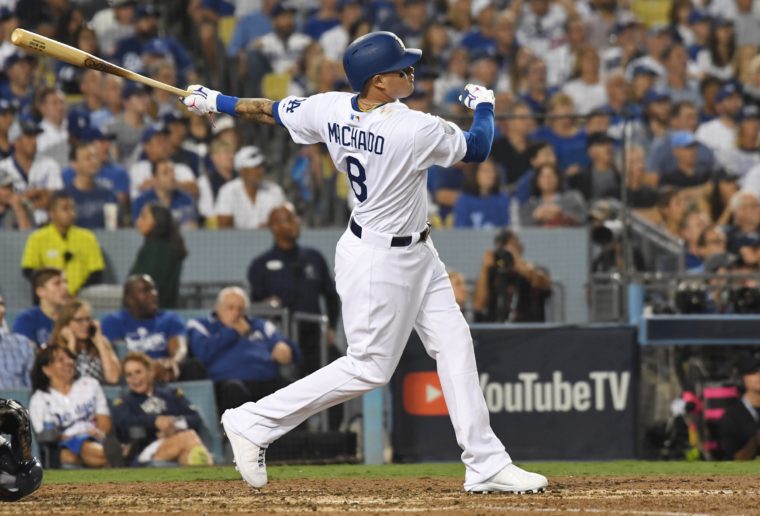
An MMO Fan Shot by Travis W.
Baseball is a business.
It is totally understandable that fans want their team to get the best players and that when owners fail to do so they are labeled ‘cheap’.
I am not here to defend the Wilpons. Not at all. For starters, I don’t know their financial situation (as private companies, MLB teams keep their books closed) or how they determine their budget for Mets players. While we would like for our owners to treat the Mets success as if it is the only thing in the world that matters, I get the distinct impression that the Wilpons run their baseball team like any other business. And for good reason. Baseball is a business. Players, agents and general managers say it all the time. It’s become a reality that has been amplified since free agency was first allowed.
So, why are teams apparently unwilling to hang out fair market contracts, forcing players to hold out longer into the offseason? Let’s examine some possible reasons.
Are the owners at fault?
The owners and GM’s seem to be getting the brunt of the animosity from fans. To me, however, it seems painfully obvious that the players and agents have manipulated the free agency market to ensure increasingly high salaries. Perhaps I am looking at it less like a fan and more as a businessman.
The agents should be trying to get the most money for their clients. If teams are not making satisfactory offers, then players and agents have the right to hold out for more money.
If you want to blame any owners for this market slow-down, you can probably blame certain owners who are either not around anymore or are being phased out of baseball decision-making. The children of George Steinbrenner and Mike Ilitch have assumed control from their free-spending fathers and do things a little differently. The same appears to be close to occurring in Washington with the Lerner family.
Is it true that MLB revenues continue to rise, and player salary percentages are dropping?
According to Forbes and MLB, the percentage of revenue that major league players (not including minor leaguers) have garnered as compensation compared with revenues has fluctuated between 48 percent and 52 percent for the last 15 years.
When you calculate in the minor league players as well, the player’s percentage has been between 55 percent and 59 percent, which is a similar percentage as the other three major pro sports. The players (MLB and MiLB) salary percentage peaked at 63 percent in 2003. Since then luxury-tax rules and more revenue sharing have been negotiated into collective bargaining agreements and are viewed as a likely reason for the drop.
However, the average MLB player salary has continued to rise, nearly doubling since 2004. And it has consistently been about half of MLB revenues. Therefore, you cannot directly blame salary/revenue percentages for the slow pace and (supposedly) smaller contracts over the past two off-seasons but it is fair to suggest that CBA agreements have indirectly contributed.
Are Teams Just Smarter?
I think we can all agree that Ivy League GM’s and analytic-based decision making has profoundly changed the game of baseball. The use of advanced analytics has made players more like commodities as opposed to actual people. There are so many statistical evaluation methods out there but the most important may be the projection models. Teams have finally decided to pay for projected future performance as opposed to past performance.
Just like in any other business, baseball teams will emulate the more successful teams. One way teams, especially this offseason, appear to be emulating winning teams is in building depth and flexibility. The way I understand it is this way: While I could stretch my budget and buy a Mercedes GLE, I feel that my Ford Escape works well enough to ensure flexibility in my budget, allowing me to buy numerous other useful items.
Perhaps you don’t like that analogy, considering that baseball owners are very wealthy. But, teams have figured out depth and flexibility are crucial to effective platoons and keeping players fresh over a long, grueling season. And, unfortunately for the Harper and Machado fans, the number-crunchers have determined that the depth and flexibility you can create over a ten year span out-weighs the 350 million you would have to pay for one player.
One way that teams try not to emulate other teams is to learn from the mega-contract given out over the past decade. So many mega-contracts have not worked out well and teams have rightfully become hesitant to dole out huge contracts. If it very fair to note that Harper and Machado are not the typical mega-contract candidates, given their relatively young age. I am confident that they will get their mega-contracts but probably not from owners who have been burned in the past.
So, Baltimore (Chris Davis), Anaheim (Josh Hamilton and Albert Pujols), and San Francisco (Matt Cain and Johnny Cueto) are all medium to large market teams with wealthy owners yet it’s doubtful they want to risk getting burned again. You can make similar cases for Atlanta, Arizona, and even Boston, who have an exceedingly high luxury tax partially because of bad contracts to Pablo Sandoval and Hanley Ramirez.
So…
It appears that there are quite a few reasons that have contributed, at least indirectly, to the recent slow-down in player contracts. You can be the judge if any one of those reasons matter more than others. However, there is one more major reason for the slow-down. Scott Boras, in my opinion, is the most culpable because MLB teams have little control over the irrational and egotistical actions of this man.

Scott Boras and the never ending offseason
It should be a surprise to nobody that Boras represents most of the top players still unsigned. Of the top 35 free agents this off-season (as ranked by MLBTradeRumors), Boras represents eight of them.
The three players he has brokered deals for so far were Matt Harvey, Zach Britton, and Japanese newcomer Yusei Kikuchi. That leaves five Boras clients – Bryce Harper, Dallas Keuchel, Marwin Gonzalez, Gio Gonzalez, and Mike Moustakas – playing the waiting (and hoping) game. Of the 27 non-Boras clients on that list all but two have signed. Manny Machado and Craig Kimbrel are the only two non-Boras clients among the top free agents that failed to sign.
What does this mean? Well, the obvious is that Boras represents lots of good players. And he has a long track record of securing larger than expected contracts for his clients. However, because his sample size is so large, there have been many notable failures. Sometimes, it is because he strongly encourages his clients to avoid signing extensions before they are free agent eligible. A player betting on themself is great as long the player does well and is healthy leading into free agency, but not so great if the player stumbles.
The waiting game
Boras did manage to get a player signed recently – Greg Holland. It’s easy to write off Holland because he was not considered a top free agent this offseason. But, it was Boras who advised Holland to reject a three-year, $52 million dollar deal from the Rockies last winter and wait for a bigger deal.
Holland ultimately had to settle for a one-year deal and had to do the same this season at a bargain basement price. Boras isn’t the only agent to make this mistake (see Grandal, Yasmani) but he is the most likely agent to advise his clients to wait. And wait. And wait. Usually it pays off, like when Victor Martinez tore his ACL in January of 2012 and the Tigers panicked and splurged on Boras client Prince Fielder.
But, there are numerous times when it has not worked out. In addition to Moustakas and Holland, just ask Carlos Pena, Ryan Madson, Kendrys Morales, or Stephen Drew if waiting was the right move. And can you imagine what would have happened if Martinez didn’t tear his ACL? Perhaps, Fielder may have went into spring training unsigned and ended up with a very different deal.
The Boras strategy is getting old
Boras is running out of owners that he can negotiate with directly, thereby bypassing the more rational and logical thinkers in the front office. As mentioned, this may happen soon in Washington as well. Mark Lerner, who has assumed control of the Nationals from his father, Ted, made a strong offer to Harper and appeared to draw a line in the sand. Boras, of course, indignantly and openly stated that Mark was not the key decision maker and proceeded to negotiate directly with Ted. There has been no deal yet so we’ll see how that plays out.
The waiting game strategy is also getting old, as teams begin to feel more comfortable waiting out Boras. If a pitchers keeps throwing the same pitch, no matter how great it is, it will eventually get crushed. Boras is a talented and relentless advocate for his clients but he needs to realize he needs a new pitch.

The trickle-down effect
Because so many of the top players are not signing, this leaves several mid-tier players in limbo. They are either waiting for the top free agents to set the market or they are known to be back-up options for teams that miss out on the top free agents. Either way, these players are willing to wait in the hope that Harper and Machado sign huge contracts that will allow them to ask for more in subsequent negotiations.
In addition, recent history has shown that when players do sign after spring training has begun they underperform, sometimes severely in the beginning as was the case last year with Alex Cobb, Lance Lynn, and Holland. They all got better as the season progressed, but is that an ideal tradeoff? I’m sure the fans would rather the players sign earlier so they don’t stink it up in the first half of the season.
The media is complicit
Over the last few years, the media in this country has been called into question. I believe strongly in that journalism as a whole has been unfairly demonized in this country. However, where I start to get perturbed is when the media piggyback on the agent’s hyperbole to manufacture a crisis when no crisis exists. It should not be surprising that sports commentators yearn for controversy and strong opinions to gain notoriety and increase viewership. They are not going to say anything critical of the players (and sometimes the agents) that they rely on for interviews and inside information.
In conclusion
Perhaps, if fans blamed Boras and his clients half as much as they blame and shame MLB owners, then we wouldn’t be waiting until February every year for teams to finalize their rosters. However, more realistically, perhaps MLB should just institute a signing period with pre-signing periods and deadlines like other pro sports utilize.
* * * * * * * * *
This Fan Shot was contributed by MMO community member and die-hard Mets fan Travis W. Have something you want to say about the Mets? Send your article to [email protected] or use this Contact Form. Or ask us about becoming a regular contributor.















